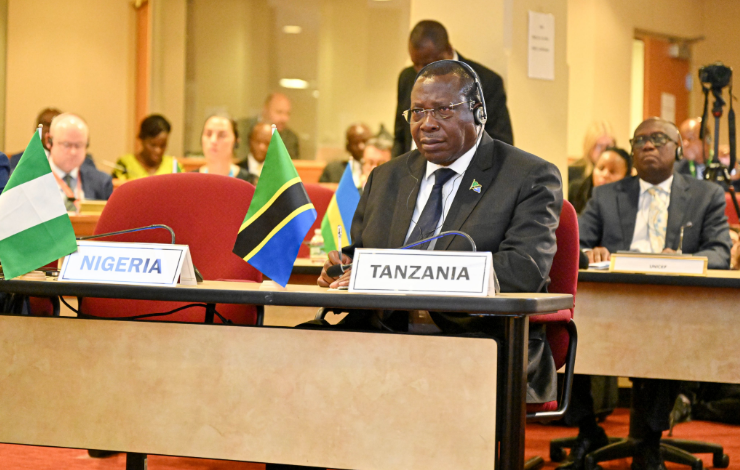TZ calls for African health sovereignty

NEW YORK: TANZANIA has stressed the need for sustainable health financing systems across Africa, especially to strengthen resilience against public health emergencies.
Speaking at the African Union Heads of State and Government Committee Meeting on the Africa Centres for Disease Control and Prevention (Africa CDC), held on the sidelines of the 80th United Nations General Assembly in New York, Vice-President Dr Philip Mpango reaffirmed Tanzania’s commitment to bolstering domestic resource mobilisation and supporting innovative financing models.
“Investing in our own systems means our continent will be better prepared to respond swiftly and effectively to emerging health threats,” Dr Mpango said.
He said it is crucial to reduce dependency on external aid, calling for Africanled initiatives to define and implement the continent’s health priorities.
Dr Mpango also stressed the critical need for local manufacturing of diagnostics, treatments and other medical supplies to ensure health sovereignty. He called for joint regulatory frameworks, increased investment in local industries and technology transfer partnerships across Africa.
Drawing from Tanzania’s experience with recent disease outbreaks like Marburg, he underscored the importance of preparedness systems, including infectious disease treatment units, rapid response teams, strengthened laboratory and surveillance networks and enhanced logistics and infection control infrastructure.
He urged greater collaboration among African Union (AU) member states, regional economic blocs, and the Africa Centres for Disease Control and Prevention (CDC) to create a united front in tackling health emergencies.
The meeting was held under the theme “Securing Africa’s Health Sovereignty: Political Leadership for Sustainable Health Financing, Local Manufacturing and Preparedness for Disease Outbreaks.”
In another development, Tanzania has reiterated its readiness to deepen trade and investment relations with the United States, leveraging recent economic reforms, infrastructure development, and over 60 years of political stability.
Speaking at the Tanzania–US Business and Investment Forum on the sidelines of the UNGA in New York, Dr Mpango said Tanzania offers an open economy with improved regulations and legal frameworks conducive to foreign investment.
“We see the private sector as a key partner in driving economic and social transformation,” he said.
Dr Mpango invited US investors to explore opportunities in key sectors including critical minerals (graphite, nickel, lithium), clean energy and battery manufacturing, digital economy and fintech, smart agriculture, healthcare manufacturing as well as infrastructure and tourism.
He cited graphite reserves in Mahenge, with the potential to supply 15 per cent of the global battery market, and nickel in Kabanga, as areas ripe for strategic collaboration.





